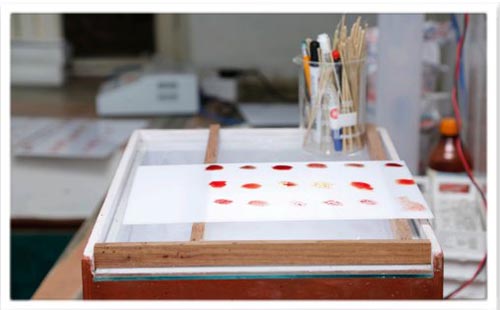Social stigma adds to thalassaemia patients’ woes
Kathmandu, April 27
Reena (name changed), a 22-year-old woman, feels bad that she does not menstruate.
Besides regular periods, her body parts are yet to develop fully. Reena was diagnosed with thalassaemia, an inherited haemoglobin disorder, 11 months after birth.
Girls normally menstruate from the age of 8 to 15.
But due to hormonal imbalance, Reena’s menstruation cycle hasn’t started yet. “I feel so bad that I cannot conceive,” said Reena, a second year Bachelor level student.
Reena has been receiving blood transfusion once a week at Nepal thalassaemia Society. “I am under medication to extract iron from the blood.”
She was also diagnosed with Hepatitis C while undergoing blood transfusion.
“Sometimes, I get depressed with my life,” said Reena, adding that her condition had also affected her family. “My sister is also a carrier of thalassaemia.”
Reena wants to earn enough money to afford her medication but the treatment is too expensive.
“I spent Rs 100,000 only for the treatment of Hepatitis C, while Rs 15,000 to 20,000 is required for blood transfusion, tests and medication every three months for thalassaemia.”
Like Reena, Dipa KC from Dolakha, who resides in Jorpati was also diagnosed with thalassaemia.
She is a 22-year-old management student.
Though her menstruation cycle started when she reached 16, she is not sure about her future. “Every girl dreams of a happy married life with her partner and kids. However, we, thalassaemia patients, do no have the right to imagine such things,” Dipa added.
Due to social stigma, females with health problems face difficulties getting married.
“This is more so when a female is unable to give birth to a child due to health complications,” shared Durga Pathak, President of Nepal Thalassaemia Society.
About 4 per cent of the total population in the country are born with thalassaemia while among the total thalassaemia population, about 34 per cent are females.
“Compared with females having thalassaemia, males do not have any problem fathering a child while females can face complications while conceiving a child,” he said.
Our society is reluctant to accept the marriage of females with abnormal health conditions.
“Raising public awareness is important for a positive outlook towards people with health problems,”
Pathak said, adding, thalassaemia is less known among the public.
“Some of my friends call it blood cancer while some call it a communicable disease.
The worst thing is they want to maintain distance from me fearing they too will be infected,” shared Dipa KC. “We are already facing financial, physical and psychological problems.
Such behaviour adds to our trauma,” she said, adding, “We also have the right to live with dignity and right to health. We want free medication and treatment.”
But till date, there isn’t any policy for providing health services to people with thalassaemia, informed Pathak. “Bone marrow transplant, gene therapy, blood transfusion and medication are the only treatment options for people with thalassaemia.
These are very costly treatment measures, which requires government support,” said Dr Ranjit Mahat, a physician working with thalassaemia patients.






